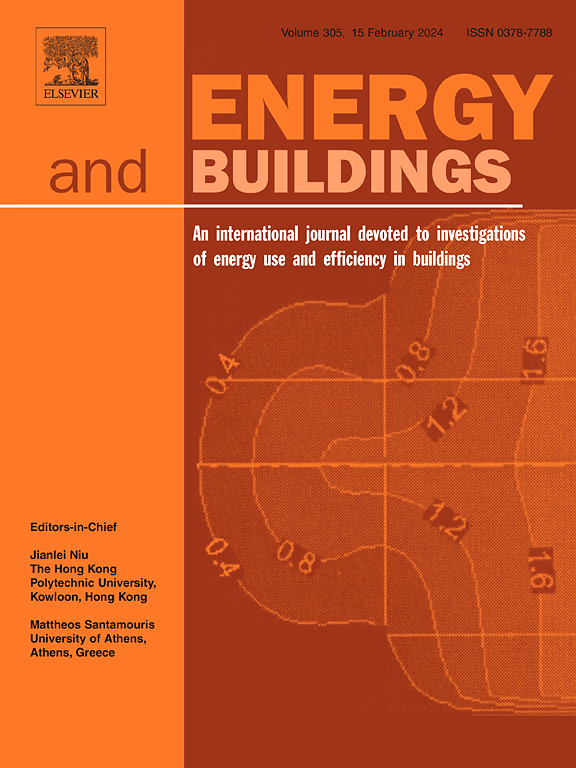Resilience testing in thermal retrofit Optimisation: Maximising the benefits of passive strategies across Behavioural, Climatic, and extreme weather scenarios
IF 6.6
2区 工程技术
Q1 CONSTRUCTION & BUILDING TECHNOLOGY
引用次数: 0
Abstract
Optimal thermal retrofit selection in residential dwellings is paramount to maximise performance outcomes. Best-practice retrofit optimisation is undertaken using data-driven building performance models supplemented by expert knowledge on inputs such as occupant behaviour, boundary conditions and local weather. Retrofits must also be resilient to changes in these input parameters to prevent future underperformance, or potentially adverse thermal conditions, should conditions change from original assumptions. While current research in this space principally focuses on building resilience to climate-based scenarios such as climate change and extreme weather events (heat waves in particular), it is not common practice to include resilience testing in retrofit optimisation. This paper uses a previously developed minimum input model to test the resilience of a range of common passive retrofits applied to three case study dwellings against a range of scenarios including changes to behaviour, occupancy, long-term climate change and under extreme weather events. The findings underscore the importance of tailored retrofit strategies as performance varied significantly between case studies and scenarios. This research demonstrates the value of resilience testing in retrofit optimisation, enabling more informed decision-making to ensure long-term adaptability and robustness to diverse and changing conditions.
热改造优化中的弹性测试:在行为、气候和极端天气情况下最大化被动策略的好处
住宅的最佳热改造选择对于最大限度地提高性能效果至关重要。采用数据驱动的建筑性能模型,辅以有关居住者行为、边界条件和当地天气等输入的专家知识,进行最佳实践改造优化。改造还必须适应这些输入参数的变化,以防止未来性能不佳,或可能不利的热条件,如果条件从最初的假设改变。虽然目前在这一领域的研究主要集中在建立应对气候变化和极端天气事件(特别是热浪)等气候情景的弹性,但在改造优化中包括弹性测试并不常见。本文使用先前开发的最小输入模型来测试一系列常见被动式改造的弹性,这些被动式改造应用于三个案例研究住宅,针对一系列场景,包括行为变化、占用、长期气候变化和极端天气事件。研究结果强调了量身定制的改造策略的重要性,因为案例研究和场景之间的性能差异很大。这项研究证明了弹性测试在改造优化中的价值,使更明智的决策能够确保对各种变化条件的长期适应性和稳健性。
本文章由计算机程序翻译,如有差异,请以英文原文为准。
求助全文
约1分钟内获得全文
求助全文
来源期刊

Energy and Buildings
工程技术-工程:土木
CiteScore
12.70
自引率
11.90%
发文量
863
审稿时长
38 days
期刊介绍:
An international journal devoted to investigations of energy use and efficiency in buildings
Energy and Buildings is an international journal publishing articles with explicit links to energy use in buildings. The aim is to present new research results, and new proven practice aimed at reducing the energy needs of a building and improving indoor environment quality.
 求助内容:
求助内容: 应助结果提醒方式:
应助结果提醒方式:


